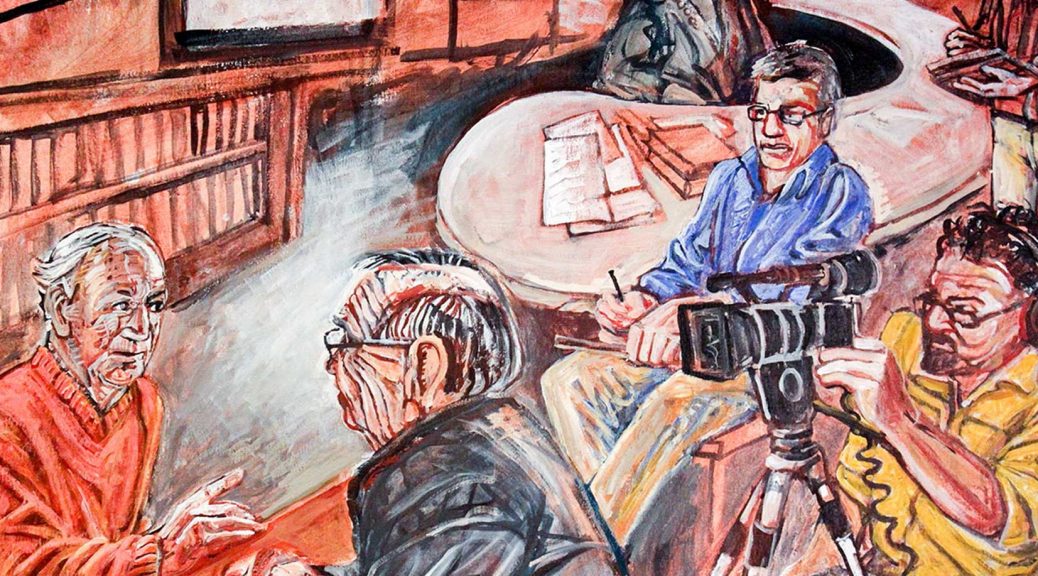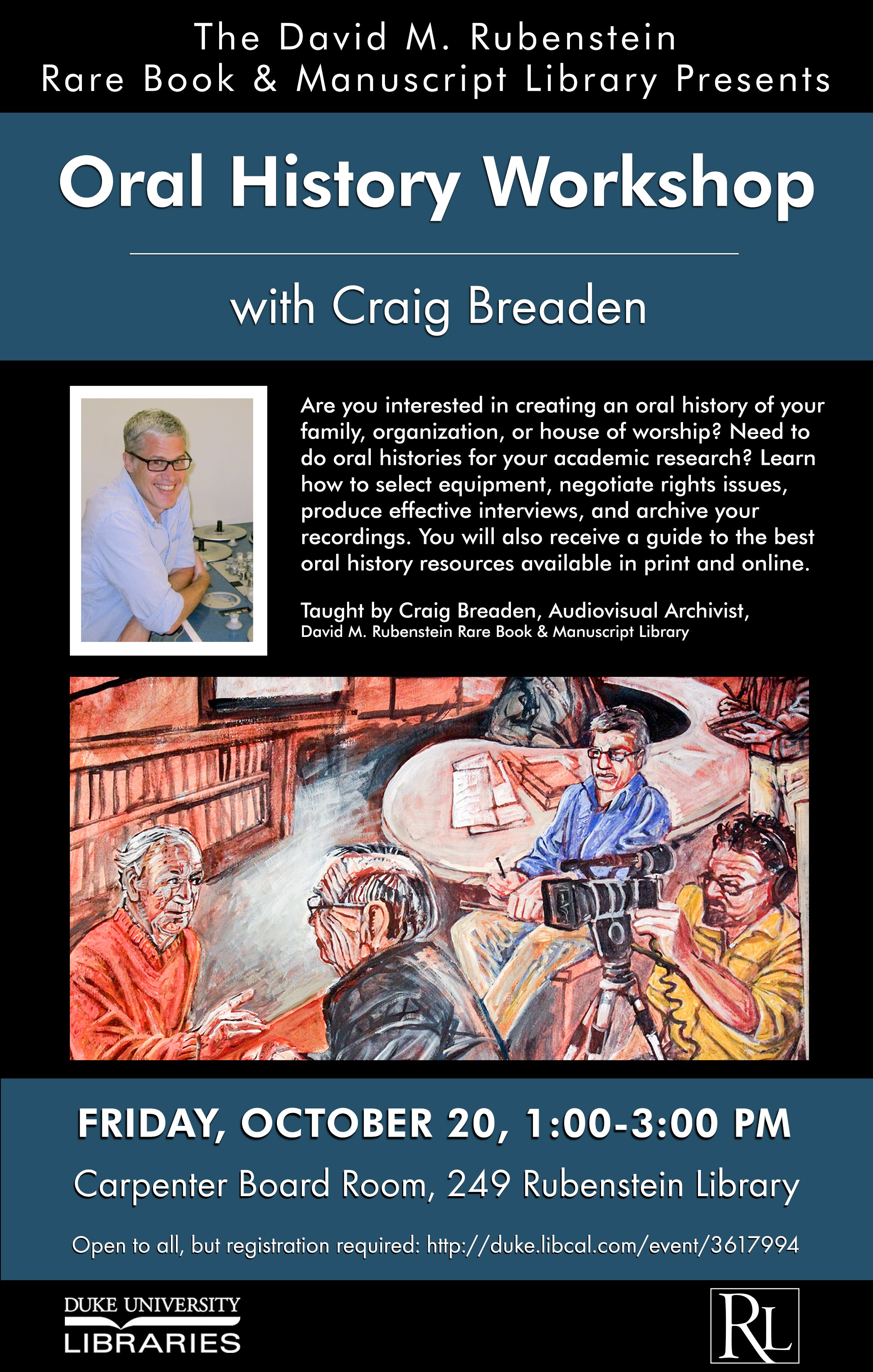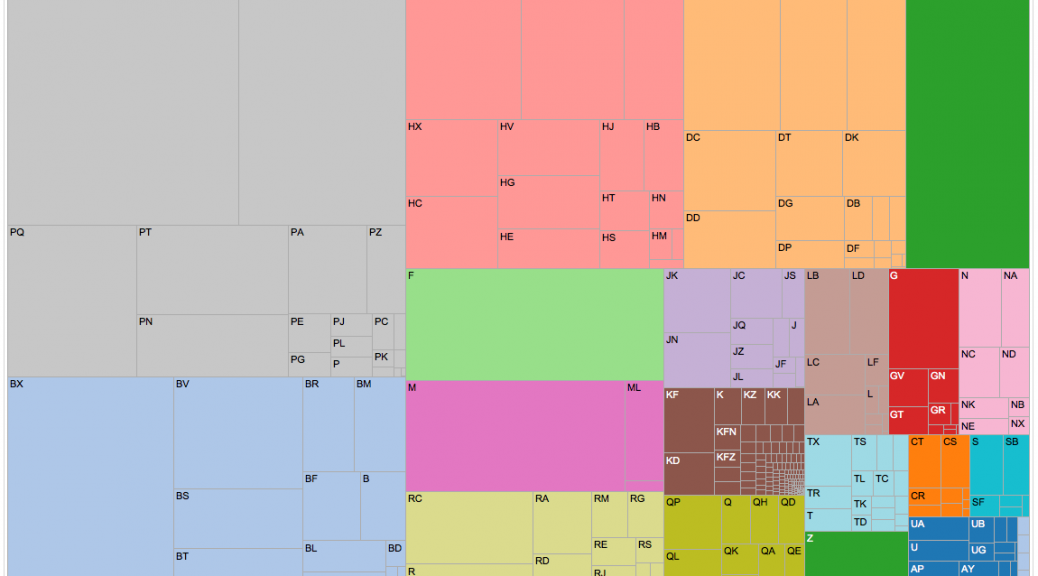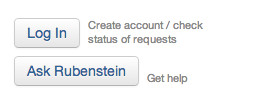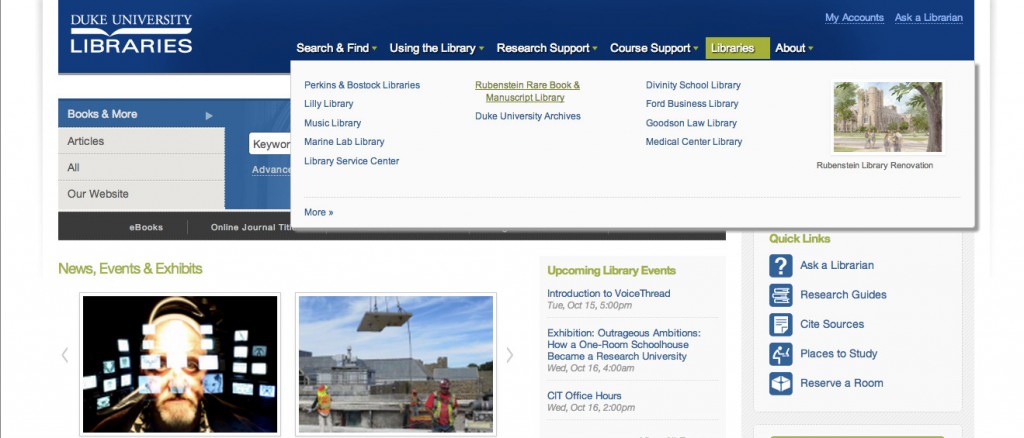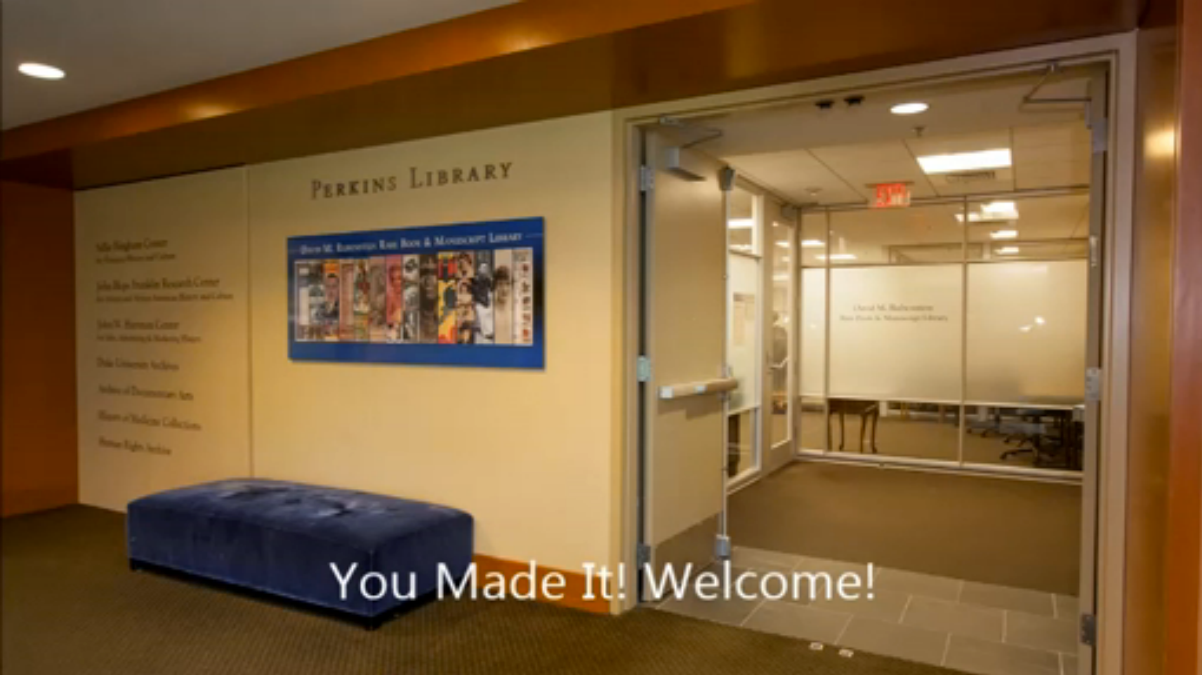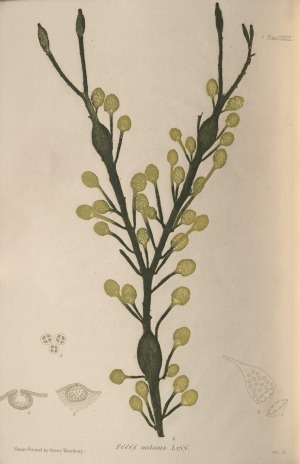While we at the Rubenstein were unable to commemorate the New Year with a ball (or perhaps pickle?) drop, we do have a lot to be excited for in this newest of years. After a stint on the third floor of Perkins, we’re finally making the trek to our permanent location—a location that while physically close, has occasionally felt as though it were light years away. In July 2015, the staff and collections of the Rubenstein will move (ourselves) home.
Perhaps because we conquered a move once before, we’re feeling ambitious, even a little daring. In addition to moving nearly 18,000 linear feet of onsite material (plus offsite material!), we’re also reclassifying our entire print holdings into a single, unified system: the Library of Congress classification. No longer will we have 120+ different call number systems, ranging from Riess C246I to E F#1275. Now, all our call numbers will follow the same alphanumeric system, one that is used by the larger Duke Libraries system. Here’s how the two call numbers above might be classed in the future:
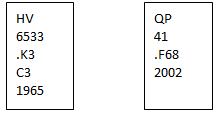
A brief lesson about Library of Congress classification: those lines of alphanumeric text all have specific meanings outlined the Library of Congress classification schedules and its associated texts. The first lines of letters and numbers (e.g., HV6533) always refer to the subject of the work. In case you were wondering, HV refers to the subject “Social pathology. Social and public welfare. Criminology.” The subsequent lines are then used to provide additional clarity, narrowing in on topics, geographic locations, authors, title, and even formats. The LC classification thus packs a huge amount of information into a scant amount of space.
So how will this help the Rubenstein (and you)? By moving to a single system, we’re making our collections more browsable, both for staff and for researchers. Since every call number has a subject associated with it, we can conduct both granular and broad searches in our catalog (and if you’re staff, in the stacks). We’re also making it easier for our staff to pinpoint the locations of items. With 120+ call numbers, there are lots of pockets in the stacks where an item might live. Library of Congress will not only unify our call number system but will also create stronger shelving practices. There will be a place for everything, and everything in its place.
Some of these advantages won’t be felt until we move into our new space and finish out the reclassification project. Others are already making their presence known. Because our call numbers are now tied to specific subjects, we can use our current data to pinpoint collection strengths, weaknesses, and gaps. We’ve been able to develop some very cool data visualization:
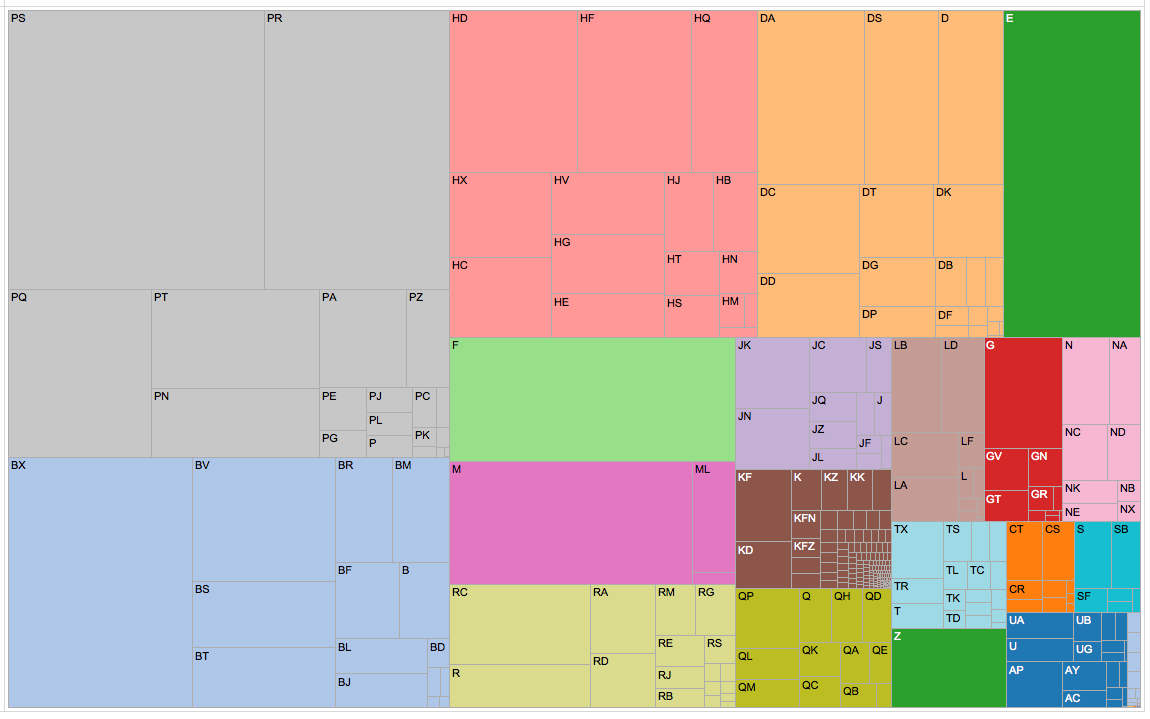
While we knew (and probably could have guessed) that a substantial proportion of our print work falls into Language and Literature, other topics are a little more surprising. Who knew we had works about general Agriculture (S), Plant Culture (SB), and Animal Culture (SF)? I certainly didn’t, but now that I know, I might just be tempted to brush up on my knowledge of farm life.
There’s still a lot to do, but we’re making steady progress in our reclassification project and our many other move preparation projects. And we’re very happy to say the Rubenstein Library is on the move!
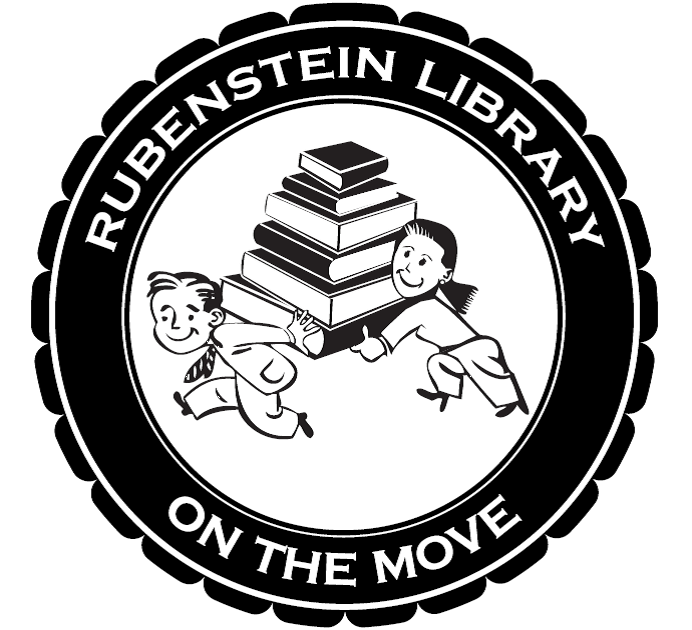
A special thanks to Noah Huffman and Angela Zoss in Data Visualization for creating the incredible visualization featured in this blog post. It’s a real beauty.
Post contributed by Liz Adams, Collections Move Coordinator at the Rubenstein.




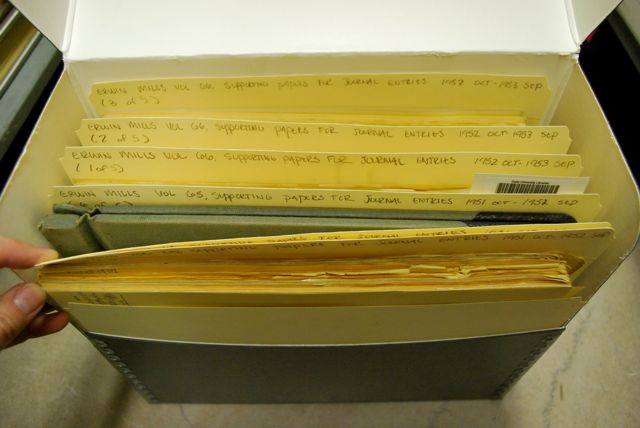
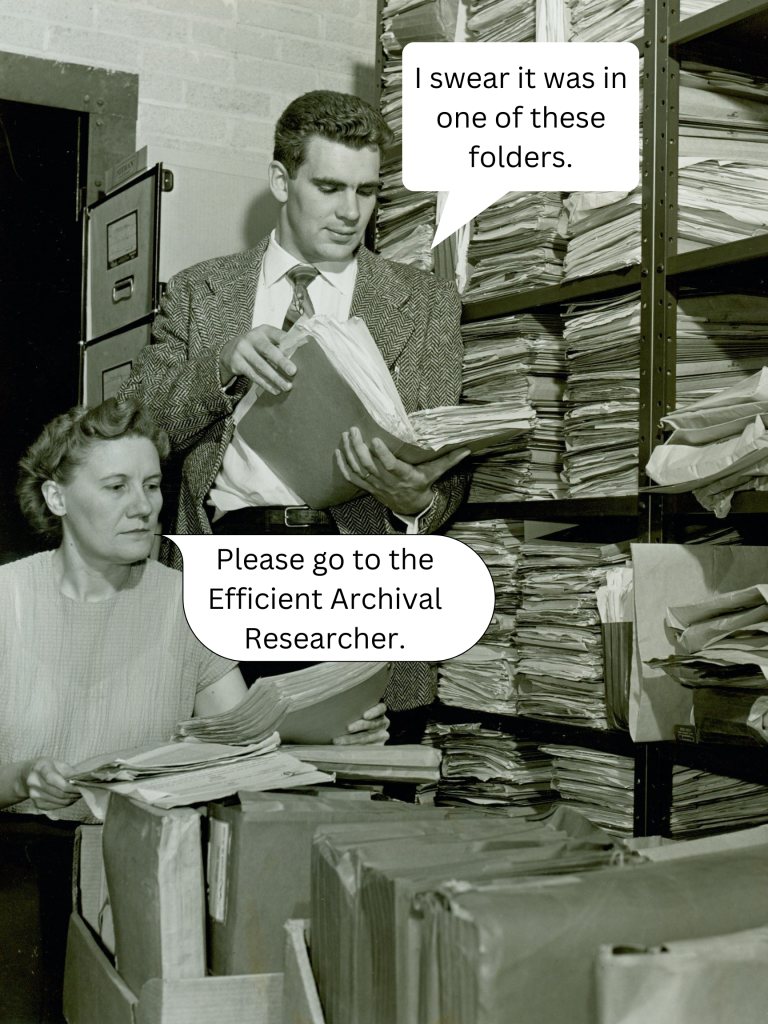




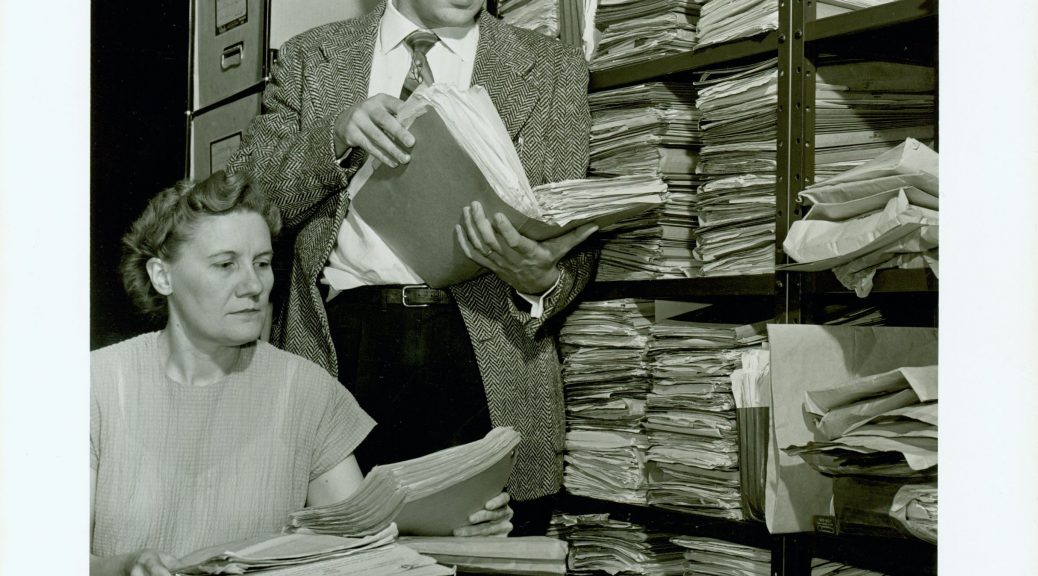
 Date: April 17, 2018
Date: April 17, 2018